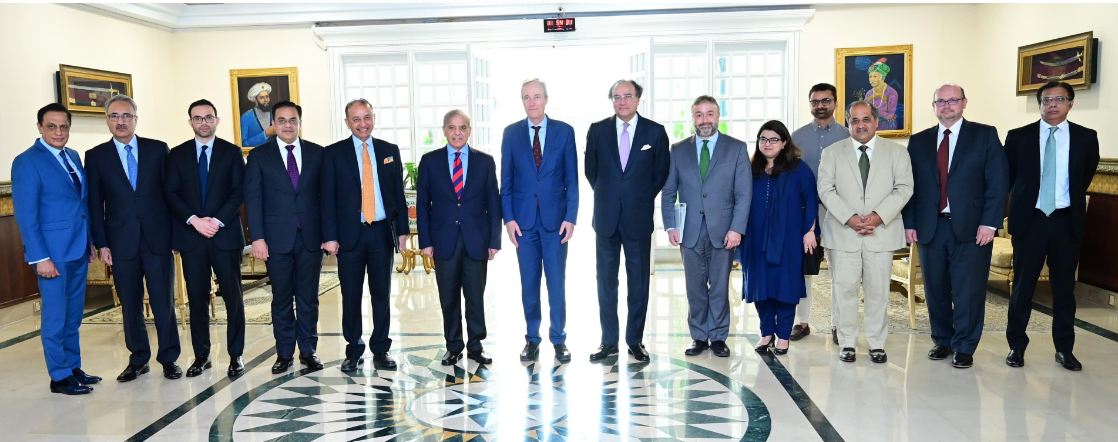Pakistan and the World Bank have agreed to work together on a robust and ambitious Country Partnership Framework to advance Pakistan’s reform and development agenda. The Prime Minister’s Office stated on Wednesday that the World Bank Regional Vice President for South Asia, Martin Ricer, along with a delegation, met with Prime Minister Muhammad Shahbaz Sharif and country representative Naji Benhasin.
The Prime Minister expressed his appreciation for the World Bank’s support in the development of Pakistan, especially in building climate-resilient infrastructure after the 2022 floods. He also briefed the delegation on the government’s reform agenda, which includes digitizing the entire tax system, boosting production in the agricultural sector, reforming the power sector, and addressing child development. Martin Ricer commended the agenda and said that the World Bank is ready to collaborate with Pakistan in its journey towards sustainable development. They agreed to an annual review mechanism to monitor progress and ensure results are achieved.
The strategy will be flexible enough to incorporate future needs and new partnerships in Pakistan over a decade. The goal is to achieve transformative effects in key development priorities.
During the meeting, the primary areas of focus were structural economic reforms, such as digitization, taxation, and domestic resource mobilization. The policy includes reforms for human capital development, especially child development and improving basic education.
Additionally, energy sector reforms were discussed, including increased private sector participation in transmission and distribution and transitioning to green energy to make it more affordable, environmentally friendly, and financially sustainable. Both sides emphasized the need for cooperation in climate adaptation to better deal with increasing water scarcity and climate change. Pakistan will mobilize global expertise and best practices to increase economic opportunities, particularly in the agricultural sector. Building national capacity, leveraging digital transformation, and private sector partnerships will benefit from world-class expertise through the World Bank, the private sector, the International Monetary Fund, the Corporation, and the Multilateral Investment Guarantee Agency.
It was agreed that the process of preparing the new Country Partnership Framework will involve consultation with federal and provincial governments, academics, parliamentarians, civil society, development partners, and the private sector. The World Bank will engage with stakeholders to discuss partnership priorities that align with the Government of Pakistan’s key development priorities and strategies.
World Bank Country Representative Mr. Naji Benhasin and Secretary of Economic Affairs Division Dr. Kazim Niaz signed the declaration in this regard. Prime Minister Muhammad Shahbaz Sharif was also present on this occasion. The meeting was attended by Economic Affairs Minister Ahad Khan Cheema, Finance Minister Muhammad Aurangzeb, Petroleum Minister Dr. Mossadegh Malik, Minister of State for IT Shiza Fatima Khawaja, Deputy Chairman Planning Commission Dr. Jahanzeb Khan, and senior officials of the Government of Pakistan.


Comments are closed, but trackbacks and pingbacks are open.